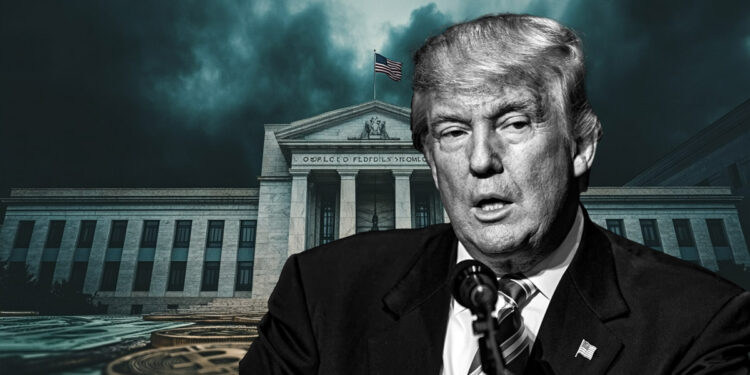New Monetary Policy Proposals and Bitcoin’s Role in the Financial System
President Trump’s recent remarks about the Federal Reserve and Senator Mike Lee’s proposal to abolish the central bank have sparked discussions about potential changes in monetary policy that could impact Bitcoin’s role in the financial system.
President Trump Urges Rate Cuts
– On March 20, 2025, President Trump called for the Fed to lower interest rates in response to their decision to keep rates steady amid escalating tariffs.
– Trump’s direct approach in criticizing the Fed aligns with his previous comments, where he referred to Fed Chair Jerome Powell and his team as “boneheads.”
– These critiques raise concerns about the Fed’s future independence and the potential impact on inflationary boom-bust cycles.
Challenges to Fed’s Independence
– The current administration’s efforts to consolidate power through executive orders could challenge the long-established firewall between political interests and monetary policy decisions.
– Trump’s continued pressure on the Fed to implement rate cuts coincides with the administration’s plans to introduce new reciprocal tariffs, further blurring the lines between politics and monetary policy.
Senator Lee Advocates for Abolishing the Fed
– Senator Mike Lee’s proposal to abolish the Federal Reserve highlights a growing political willingness to reconsider the structure of U.S. monetary governance.
– Lee argues that the Fed has become an “economic manipulator,” prompting discussions about the central bank’s role in the economy.
Strategic Bitcoin Reserve and Monetary Policy
– Trump’s executive order establishing a Strategic Bitcoin Reserve elevates Bitcoin to a strategic national asset comparable to gold.
– The administration plans to build this reserve through criminal asset forfeitures and other budget deficit strategies, potentially reducing selling pressure in the market.
– Plans to expand the Bitcoin reserve using a cost-neutral approach signal a shift towards integrating Bitcoin into broader economic frameworks.
Implications for Bitcoin and Monetary Policy
– The convergence of Trump’s monetary critiques and strategic Bitcoin initiatives could reshape market perceptions and solidify Bitcoin’s role in U.S. financial reserves and monetary policy.
– Bitcoin’s inherent decentralization and resistance to centralized control position it as a counterbalance to politically influenced monetary policy.
– If efforts to eliminate the Fed progress, Bitcoin could serve as a decentralized monetary alternative during times of financial uncertainty or political interference.







